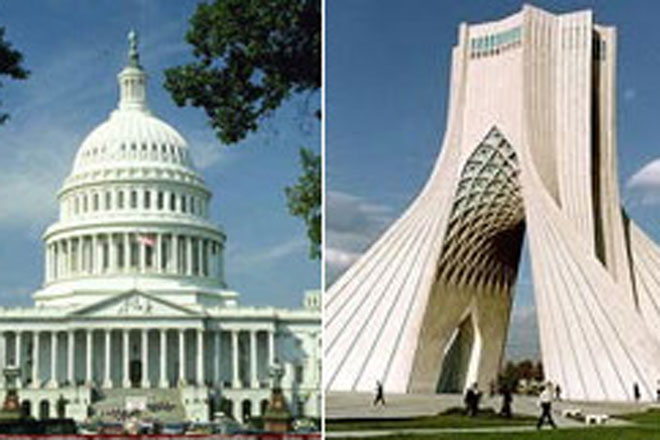Azerbaijan, Baku, Apr. 16 / Trend D.Khatinoglu /
Although the United States has not fulfilled its obligations under the sixth paragraph of the International Atomic Energy Agency's (IAEA) Non-Proliferation of Nuclear Weapons Treaty, the new U.S. strategy is consistent with international norms and rules.
U.S. expert on international security and military matters, University of North Carolina Center for Security Studies Director, Professor Jalil Roshandel, said it is important to understand why the new U.S. strategy does not exclude the possibility of a nuclear attack on Iran or North Korea.
"Iran and North Korea pose a potential threat to U.S. security," Roshandel told Trend over the telephone.
Roshandel said the United States has repeatedly urged Iran to normalize relations, but Tehran has rejected all offers.
"We can say that Iran and North Korea do not need normal international relations, and they see America as the enemy. The United States uses all possible means to prevent threats to its security," he said.
Last week, U.S. President Barack Obama released the country's new nuclear strategy. The doctrine precludes the possibility of a nuclear attack against countries without nuclear weapons, even if these countries attack the United States. The only exceptions are Iran and North Korea.
Any country that possesses nuclear weapons has the right to use them against enemies that are threatening its national interests, University of Glasgow Professor, Iranian-born Reza Taghizadeh told Trend over the telephone. He said the new U.S. strategy is defensive in nature.
"I think if Iran and North Korea refuse to play by international norms, then they should not expect others to treat them as normal members of the international community," Senior Research Fellow at Tel Aviv University's Moshe Dayan Center for Middle Eastern and African Studies Meir Litvak told Trend. "Obama wants to show that even though he is looking for dialogue and a diplomatic solution, they should not misread him to be a soft 'paper tiger' and they should take the United States seriously. If the United States fails to divert Iran from producing a nuclear bomb, then it will be forced to resort to cruder methods."
The Iranian officials strictly criticized the question of the possible use of nuclear weapons by the United States. Iranian Supreme Leader Ayatollah Ali Khamenei called the United States an "uncertain exploiter." Iran's Permanent Representative to the U.N. Mohammad Khazaee sent a protest letter to the organization's Secretary General Ban Ki-Moon.
In an interview with Trend April 13, Iranian Representative to the IAEA Ali Asghar Soltaniyyeh said the United States has not met the aforementioned treaty's sixth paragraph for 50 years. He believes Washington is using its nuclear potential to pressure other countries.
According to the sixth paragraph, all nuclear countries are obliged to destroy their nuclear warheads.
Taghizadeh believes that unless Iran or North Korea attacks U.S. military facilities in the region, a nuclear attack is impossible.
"The U.S. Congress, especially Republicans, force Obama to take tough measures against Iran, but despite this, Obama did not say that they will attack Iran, he mentioned only the possibility of using nuclear weapons in the event of an Iranian attack on the United States," Taghizadeh said.
Only a nuclear weapon can be the answer to a nuclear threat, Roshandel said.
"I think it should be adequately perceived by the international community. Iran and North Korea are a potential nuclear threat to peace," he added.
The United States and other Western countries accuse Iran of developing nuclear weapons for military purposes under the guise of peaceful nuclear energy program. Tehran denies the charges, saying that its nuclear program is aimed solely at meeting the country's electricity needs.
The U.N. Security Council adopted five resolutions in connection with the suspension of Iran's nuclear program. Three involve the use of economic sanctions on Iran.
Do you have any feedback? Contact our journalist at: [email protected]






